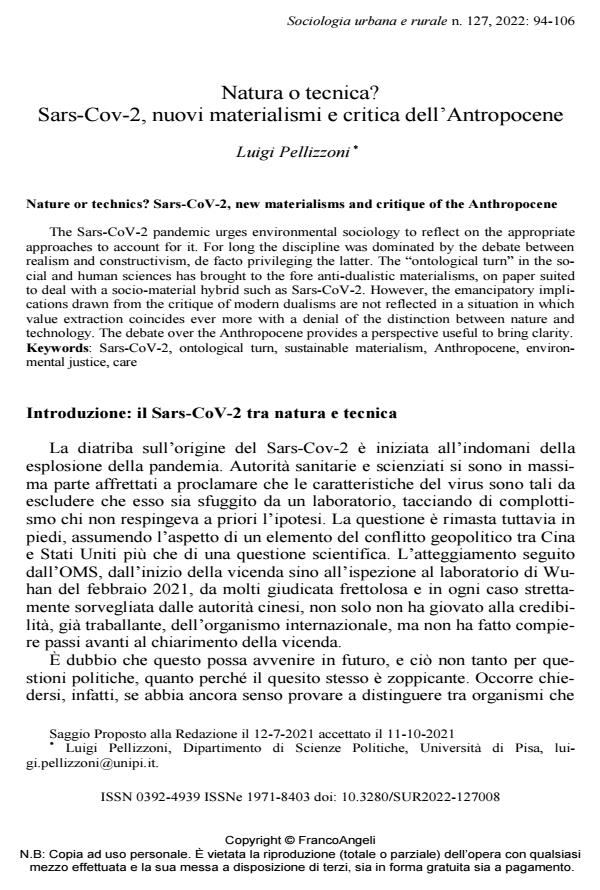Nature or technics? Sars-CoV-2, new materialisms and critique of the Anthropocene
Journal title SOCIOLOGIA URBANA E RURALE
Author/s Luigi Pellizzoni
Publishing Year 2022 Issue 2022/127
Language Italian Pages 13 P. 94-106 File size 284 KB
DOI 10.3280/SUR2022-127008
DOI is like a bar code for intellectual property: to have more infomation
click here
Below, you can see the article first page
If you want to buy this article in PDF format, you can do it, following the instructions to buy download credits

FrancoAngeli is member of Publishers International Linking Association, Inc (PILA), a not-for-profit association which run the CrossRef service enabling links to and from online scholarly content.
The Sars-CoV-2 pandemic urges environmental sociology to reflect on the appropriate ap-proaches to account for it. For long the discipline was dominated by the debate between real-ism and constructivism, de facto privileging the latter. The "ontological turn" in the social and human sciences has brought to the fore anti-dualistic materialisms, on paper suited to deal with a socio-material hybrid such as Sars-CoV-2. However, the emancipatory implications drawn from the critique of modern dualisms are not reflected in a situation in which value extraction coincides ever more with a denial of the distinction between nature and technology. The debate over the Anthropocene provides a perspective useful to bring clarity.
Keywords: Sars-CoV-2, ontological turn, sustainable materialism, Anthropocene, environ-mental justice, care
Luigi Pellizzoni, Natura o tecnica? Sars-Cov-2, nuovi materialismi e critica dell’Antropocene in "SOCIOLOGIA URBANA E RURALE" 127/2022, pp 94-106, DOI: 10.3280/SUR2022-127008